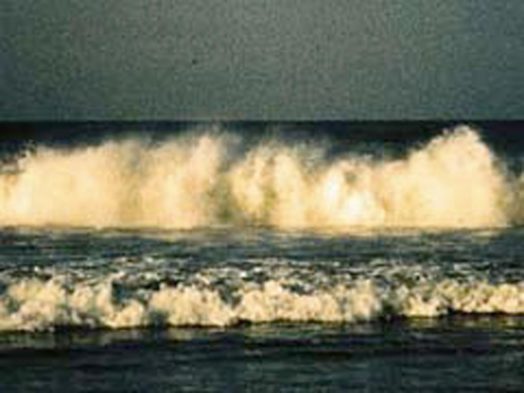| Position | Lisl Ponger |
Saving the Uncertainty
by Patrick Holzapfel
In Arabic literature, Riḥla identifies both a journey and also a travelogue of it. I encountered this word most recently in connection with an old man in an attic in Rijeka in Croatia, who obsessively makes imaginary maps of the Mediterranean—and then again, in association with the cinematic work of Lisl Ponger. It’s unlikely that that artist, photographer, filmmaker, and pioneer of the Austrian avant-garde knows the cartographer, but her films, too, are both journeys and travelogues.
In Ponger’s Passagen (1996), we see travel photos collected by the filmmaker that due to the different narratives on the soundtrack, condense to a larger, contradictory movement; for example, when tourism and immigration are set in relationship with one another: here, the cruise ship, there the immigration from Cuba. An imbalance becomes visible, between the voices, but also between sound and image. And suddenly, our accustomed gaze is unmasked, suddenly we see the contradictions: here, the tourists’ proud gaze in the camera, there, their gaze at the so-called exotic.

Lisl Ponger her studio in October ’23 © Diagonale / Elsa Okazaki
Boats, Clouds, and Artists
Ponger has been surrounded by images her whole life. She comes from a family of photographers and attended the school of graphic arts, the Grafische Lehr- und Versuchsanstalt in Vienna. Her first encounter with radical art most likely came in the circles of the Vienna Actionists. She documented actions by Peter Weibel and Hermann Nitsch and met Ernst Schmidt Jr., who encouraged her to make films. Ponger’s cinematic work can be roughly divided into two phases: the first, up to the start of the 1990s, can be described as structuralist avant-garde, in which she explores the mechanisms of film and camera. Later, added to this was a documentary impulse, with which the filmmaker questioned her gaze at reality. Ponger describes her early films as “formal films.” With that, she places herself in the great tradition of Austrian experimental film, which she has decisively shaped. The fact that she is one of the founding members of the film distributor sixpackfilm, says a lot about her influential role.
Ponger’s avant-garde works of the 1980s are full of self-reflective references: movements, for example of boats, clouds, artists, and soldiers always also point to their horizontal or vertical arrangement in the image. And experiments with light, are always also ones with exposure. Over the years, Ponger has increasingly worked out that an image is not only something that can be interpreted, but is itself, already an interpretation.
At a time when the power of images is becoming steadily more important, Ponger’s deconstruction of ideologically influenced image-making is gaining momentum. For her, an image is an image is an image. Accordingly, in films such as Container – Contained (1985) and Semiotic Ghosts (1991) you never know what you are looking at: the image—or the image of the image? Ponger is concerned with no less than saving the uncertainty of those who view these pictures. Incidentally, this also applies to her treatment of found footage, which is closely associated with her passion for collecting as co-founder of the flea market at Vienna’s Naschmarkt. Also Ponger’s filmography is affected by this chance nature: some of her Super8 films made in Mexico in the 1970s have gone missing. The principle of finding, important for her nature as a traveling collector, has its counterpart in losing.

Container – Contained ©
Blind Spots
Ponger is interested in the blind spot of every (image)reflection of reality: what other picture is excluded by the one shown? Wherein lies the imbalance and injustice? The artist directs her critique at this blind spot by questioning images of colonialism, tourism, racism, and neoliberalism. Ponger searches for a form of artistic synthesis, which, as the subtitle of Imago Mundi (2007) says, can “change what is valid, sayable, and doable.” For Ponger, the production of art, whether photography, film, exhibition, or literature, is a political act.
I imagine the film that Ponger would shoot about the cartographer in Rijeka. She would accompany him via a map, which like all drawn by human hands, tells of social power and personal memory. Whereas, if we were to ask the cartographer to draw Ponger’s cinematic journeys, he wouldn’t put anything down on paper but a camera, which films the world, and at the same time, him.


